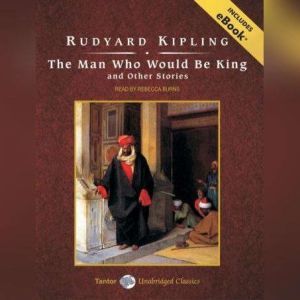About Rudyard Kipling
Short-story writer, novelist, and poet Rudyard Kipling was the first Englishman to receive the Nobel Prize for Literature and was hailed as a literary heir to Charles Dickens. His most popular works include The Jungle Books, Kim, and "The Man Who Would Be King." Audiences love his romantic tales about the adventures of Englishmen in strange and distant parts of the world. Characteristic of Kipling is sympathy for the children's world, a satirical attitude toward pompous patriotism, and belief in the blessings and superiority of the British rule. Although he was widely regarded as Britain's unofficial poet laureate, Kipling refused the honor, as well as the Order of Merit.
Kipling was born in 1865 in British-ruled Bombay, India, where his father was an arts and crafts teacher. At age six, he was put in a London foster home, and it was here that he began writing, influenced by his pre-Raphaelite ancestors. When Kipling was thirteen, he entered United Services College, an expensive military boarding school. His poor eyesight and mediocre grades ended his hopes for a military career. These years are recalled in a lighter tone in his book Stalky & Co.
Kipling returned to India in 1882, where he worked as a journalist, an assistant editor, and an overseas correspondent. Seven years later, Kipling moved back to London and married Caroline Starr Balestier, the sister of an American publisher and writer. They moved to the United States but, dissatisfied with life in Vermont and distraught by the death of his daughter, Kipling moved his family back to England. Still restless, he poured his energy into writing and produced The Jungle Books.
During the Boer War, Kipling spent several months in South Africa. In 1901, he published Kim, which is widely considered his best novel. Kipling received the Nobel for Prize for Literature in 1907. The prestigious prize was awarded for his power of observation, originality of imagination, virility of ideas, and remarkable talent for narration. Kipling died on January 18, 1936, in London.


![]()


